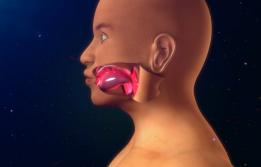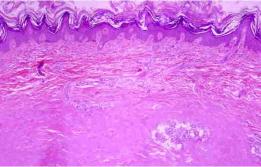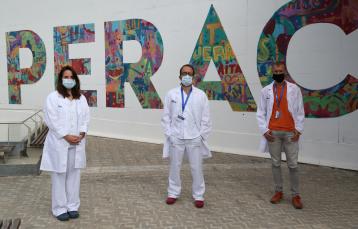Immunology
Description
The Immunology Department is part of VH Clinical Laboratories, some of the largest in Europe with more than 16,000,000 determinations / year. It is located in new premises (2014) on the ground floor of the VH Clinical Laboratories building (approximately 400 m2). It is organised by processes under the framework of the ISO 9001 quality management system: Autoimmunity, Hypersensitivity, Cellular Immunology, Immunogenetics (HLA and disease), Immunogenetics (Study of primary immunodeficiencies), Immunoproteins, Monitoring of immunotherapy and Clinical Immunology Clinic. It actively participates in the clinical processes of the Hospital on multidisciplinary case management committees for amyloidosis, multiple myeloma, primary immunodeficiencies and complex glomerulopathies.
It also works bilaterally with other departments in the clinical processes relating to autoimmunity, allergies, reproductive immunology and cancer. The department is part of the Transversal Immunology Programme on the Vall d'Hebron Campus, which facilitates collaboration with other professionals working on immunology issues in other research groups. This enables the department to have 3 different programmes of sessions covering:
- reviews of topics relating to diagnostic immunology
- clinical cases
- Journal Club or Research in progress (in English)
Accredited places: 1
Download the unit training programme (in Spanish)
Why specialise at Vall d’Hebron?
- Because we are a tertiary hospital with outstanding departments. The number of patients that pass through the centre offers great potential for learning and gaining experience.
- Because we cover most specialisations and you will have the opportunity to see complex conditions and to use cutting-edge diagnostic techniques and treatments.
- Because our training programme can adapt to the initiative and vocation of each resident, with more emphasis on patient-contact or research according to their needs.
- Because the immunology department follows an academic model, seeking excellence in healthcare through research and innovation. It also trains professionals in immunology at the undergraduate level (Medicine and Biomedicine), and postgraduate level (coordination of the immunopathology, autoimmunity and immunodeficiency subjects included in the Master’s of Advanced Immunology and Master of Science in Leading International Vaccinology Education). It coordinates the "Immune System Diseases" section of the Master’s in Translational Biomedical Research VHIR-UAB).
- Because this is a leading centre in the European Network for Primary Immunodeficiency Disorders (ERN-RITA) and Complex Glomerulopathies (ERK-Net).
- Because it is the leading unit of the Neonatal Screening Programme of the Catalan Department of Health in the field of serious combined immunodeficiency (unique to Spain).
- Because the Jeffrey Modell Foundation has recognised the HUVH as a centre of excellence in primary immunodeficiencies (the first such centre in Spain).
- Because it offers comprehensive care for patients with primary immunodeficiency, from children to adults, through a Multidisciplinary Case Management Committee (only centre of its kind in Catalonia).
- Because it has a clinical immunology consultation where patients with complex immunomediated diseases are diagnosed and treated.
- Because the Federation of Clinical Immunology Societies (FOCIS) has declared the HUVH the coordinator of the Barcelona-UAB-FOCIS Centre of Excellence.
The department comprises 7 immunology specialists, 2 with a more clinical profile and 5 with a laboratory profile, as well as a molecular immunology expert. There is also one supervisor and 12 technicians.1 administrator. 1 resident per year (currently 3) and an immunology pre-doc.
There are professionals linked to the immunology department who are involved in different processes:
The Cerebrospinal Fluid Laboratory is the result of a collaboration agreement with VHIR-CEMCAT (Multiple Sclerosis Centre of Catalonia), to carry out complex care tests and implement new biomarkers in multiple sclerosis in healthcare practice (translational research). This process involves a principal researcher from the Clinical Neuroimmunology research group and a technician.
The allergy unit, in conjunction with the immunology department, is actively involved in drawing up reports interpreting the results of molecular allergy testing of patients from other centres. This added value means the department is even more useful for customers.
To improve the coordination of the paediatric primary immunodeficiency process. The Immunology Department shares a biologist with the Paediatric Infectious Pathology and Immunodeficiency Unit. This biologist takes on tasks shared between the clinic and the lab.
There is collaboration with the Translational Bioinformatics Research Group to determine the pathogenicity of gene mutations in patients with primary immunodeficiency. The complementary nature of immunological, genetic, bioinformatic and functional studies of proteins allows a personalised diagnosis of patients with primary immunodeficiency, which in turn helps find treatments that are more appropriate to the molecular pathology in question.
The Immunological Regulation and Immunotherapy Research Group provides methodological and technical support to the Department of Immunology in applied research subjects. The group leader is currently co-IP on a research project (on Family Haemophagocytic Syndrome) and this collaboration will be included as part of a resident’s thesis.














